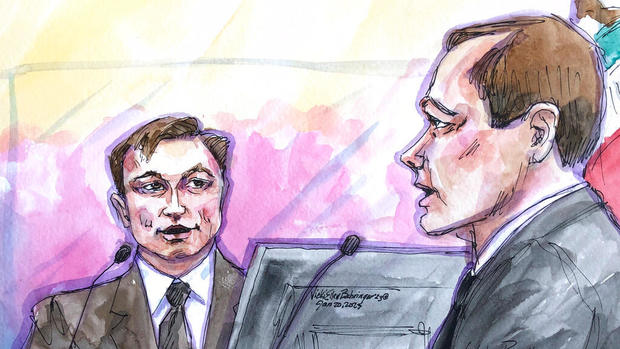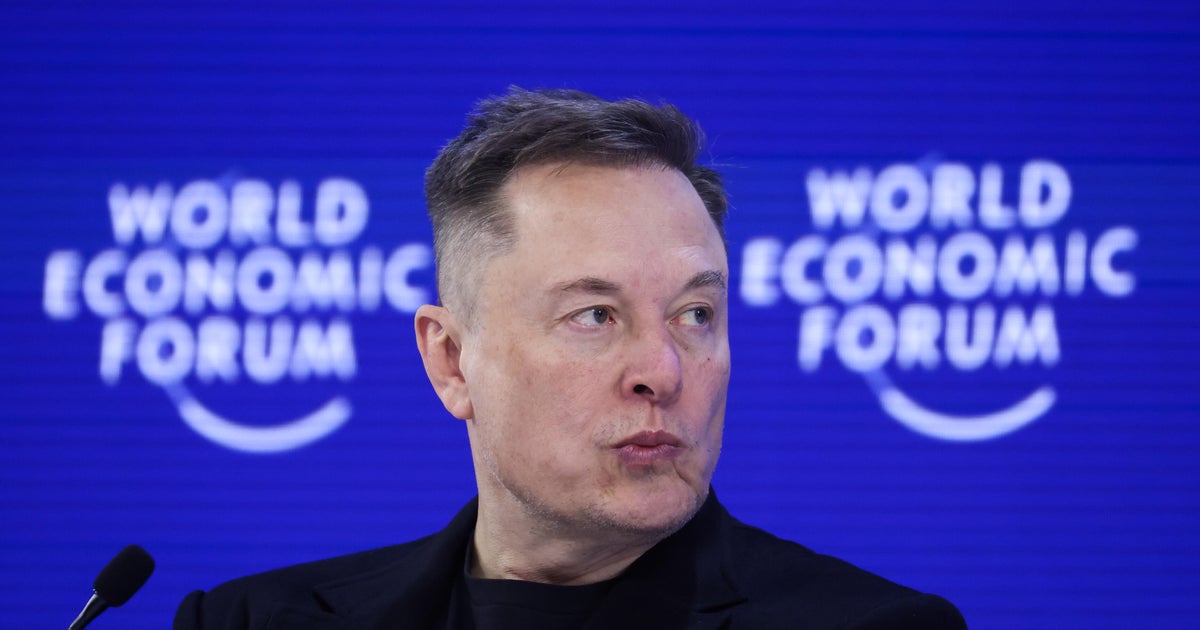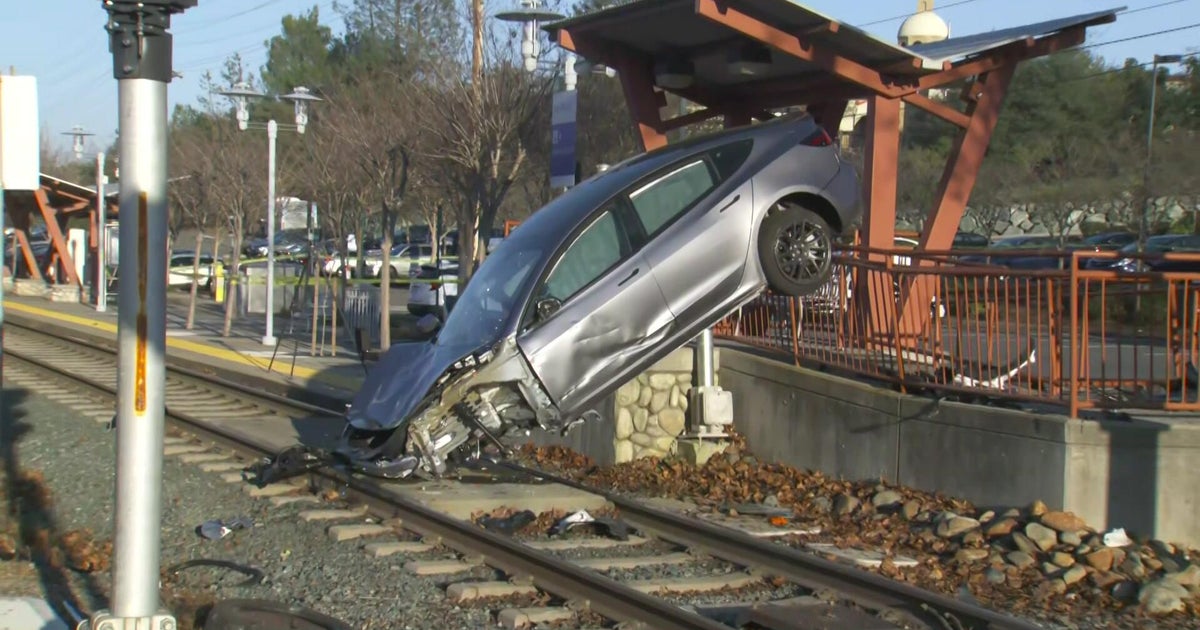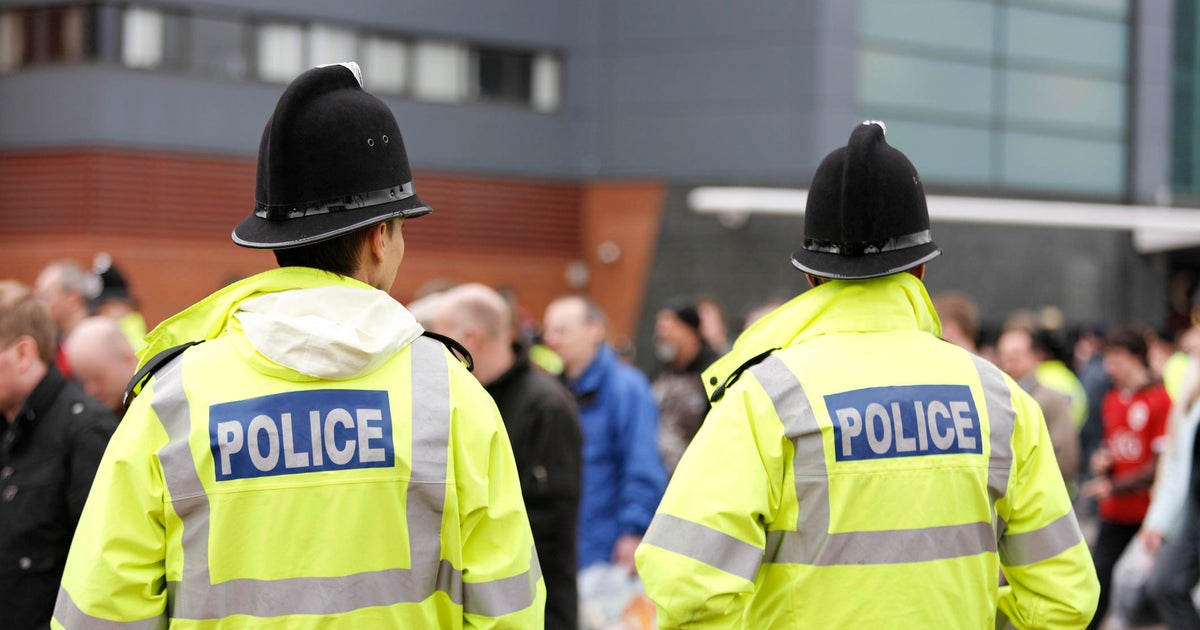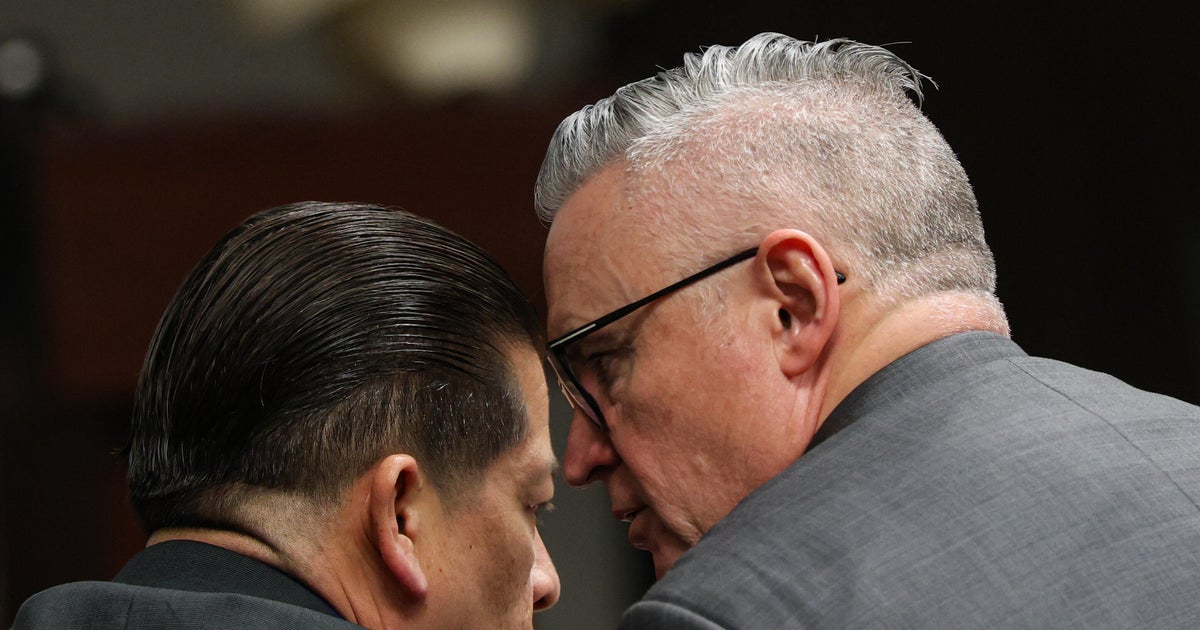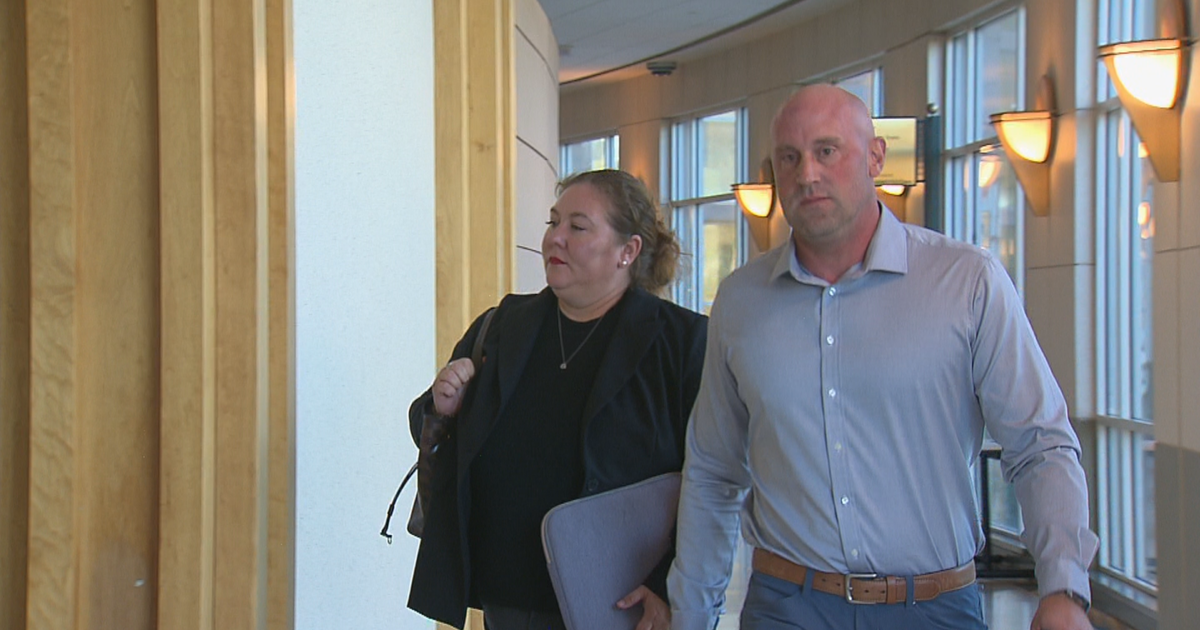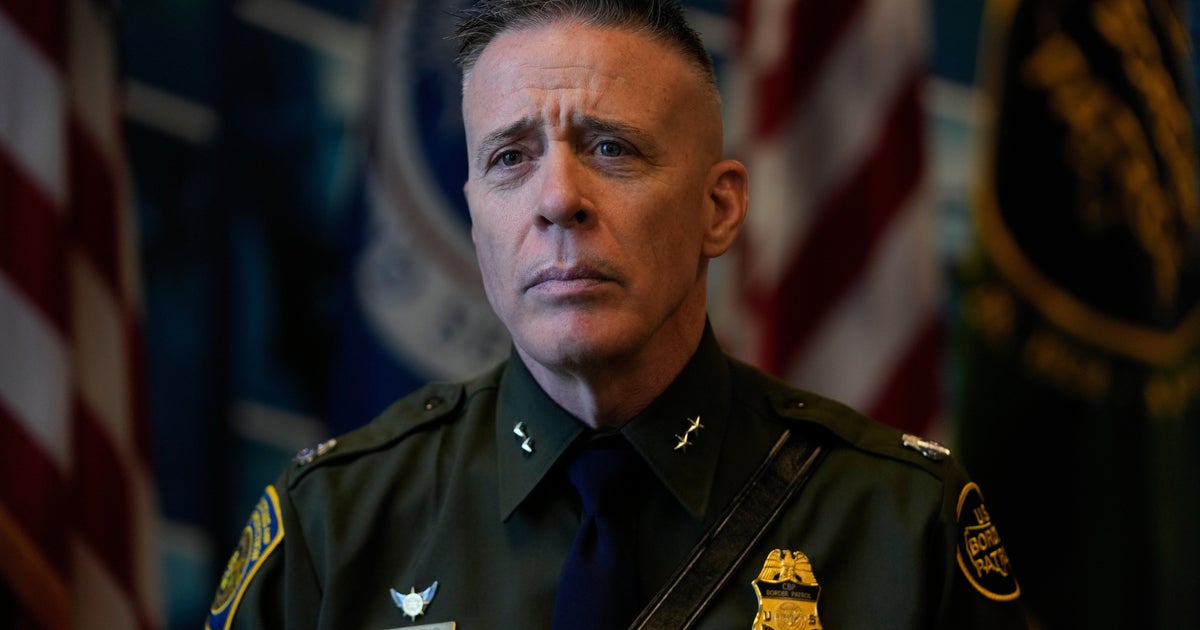Elon Musk takes the stand in trial over his Tesla buyout tweets
SAN FRANCISCO -- Elon Musk took the witness stand Friday to defend a 2018 tweet claiming he had lined up the financing to take Tesla private in a deal that never came close to happening.
The tweet resulted in a $40 million settlement with securities regulators. It also led to a class-action lawsuit alleging he misled investors, pulling him into court Friday.
The mercurial billionaire took the witness stand wearing a dark suit on the third day of a civil trial in San Francisco that his lawyer unsuccessfully tried to move to Texas, where Tesla is now headquartered, on the premise that media coverage of his tumultuous takeover of Twitter had tainted the jury pool.
The nine-person jury assembled earlier this week will be responsible for deciding whether a pair of tweets that Musk posted on Aug. 7, 2018, damaged Tesla shareholders during a 10-day period leading up to a Musk admission that the buyout he had envisioned wasn't going to happen.
A month later, Musk stepped down as Tesla's chairman while remaining CEO as part of the Securities and Exchange Commission settlement without acknowledging any wrongdoing.
In the first of those two 2018 tweets, Musk stated "funding secured" for what would have been a $72 billion buyout of Tesla at a time when the electric automaker was still grappling with production problems and was worth far less than it is now. Musk followed up a few hours later with another tweet suggesting a deal was imminent.
While there was a lot of anticipation for Elon Musk's appearance, it didn't happen until about 1:30, and court stopped at 2:00. But those 30 minutes got right to the central question in this case: What was going on in the mind of Elon Musk?
On the stand Friday, Musk -- who last year bought Twitter for $44 billion -- said tweeting is the "most democratic way" to communicate with investors.
"I care a great deal about retail investors," he said during questioning.
Right away, shareholder attorney Nicholas Porritt questioned Musk about his relationship with Twitter and how he uses it for corporate messaging.
But he acknowledged that investors can get more detail in a traditional corporate filing with securities regulators, given the character limits set on Twitter.
"I think you can absolutely be truthful" on Twitter, Musk said. "But can you be comprehensive? Of course not."
Porritt also asked Musk about how he has sparked controversy, namely the Thailand cave rescue incident, and how close associates asked Musk to step away from tweeting.
Musk pushed back. He said his tweets do not directly affect things like changing stock prices. He described the years around 2018 as being "extremely painful" given how hard he was working at Tesla, complaining that short-sellers and others were trying to kill the auto company.
Even before Musk took the stand, U.S. District Judge Edward Chen had declared that the jurors can consider those two tweets to be falsehoods, leaving them to decide whether Musk deliberately deceived investors and whether his statements saddled them with losses.
The plaintiffs need to convince a jury that it was the tweet that cost them their money. That's why the previous witnesses included angry Tesla investors and a business expert who described the whole situation as highly unusual.
Musk has previously contended he entered into the SEC settlement under duress and maintained he believed he had locked up financial backing for a Tesla buyout during meetings with representatives from Saudi Arabia's Public Investment Fund.
The trial over his Tesla tweets comes at a time when he has been focusing on Twitter, which he acquired in October after trying to back out of that purchase.
Musk's leadership of Twitter - where he has gutted the staff and alienated users and advertisers - has proven unpopular among Tesla's current stockholders, who are worried he has been devoting less time steering the automaker at a time of intensifying competition. Those concerns contributed to a 65% decline in Tesla's stock last year that wiped out more than $700 billion in shareholder wealth - far more than the $14 billion swing in fortune that occurred between the company's high and low stock prices during the Aug. 7-17, 2018 period covered in the class-action lawsuit.
Tesla's stock has split twice since then, making the $420 buyout price cited in his 2018 tweet worth $28 on adjusted basis now. The company's shares were trading around $133 Friday, down from the company's November 2021 split-adjusted peak of $414.50.
After Musk dropped the idea of a Tesla buyout, the company overcame its production problems, resulting in a rapid upturn in car sales that caused its stock to soar and minted Musk as the world's richest person until he bought Twitter. Musk dropped from the top spot on the wealth list after the stock market's backlash to his handling of Twitter.
Wilson Walker contributed to this story.
